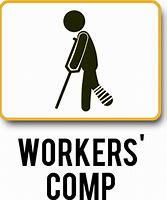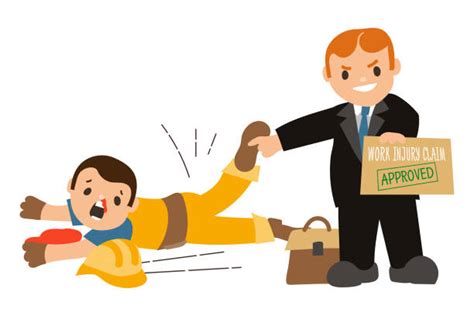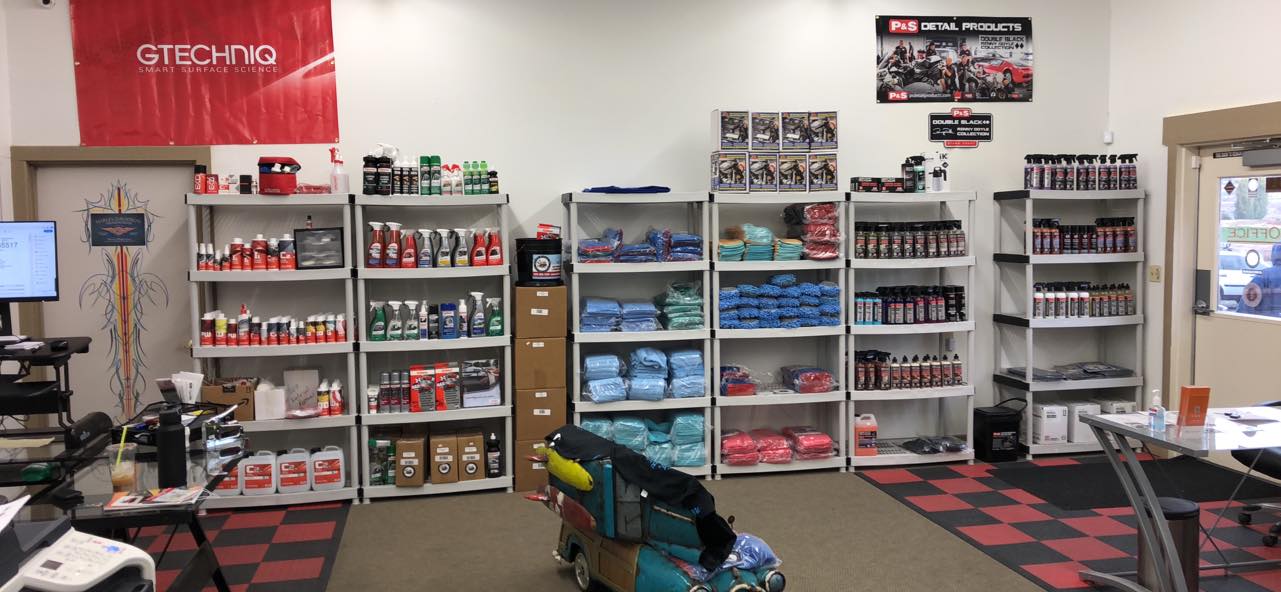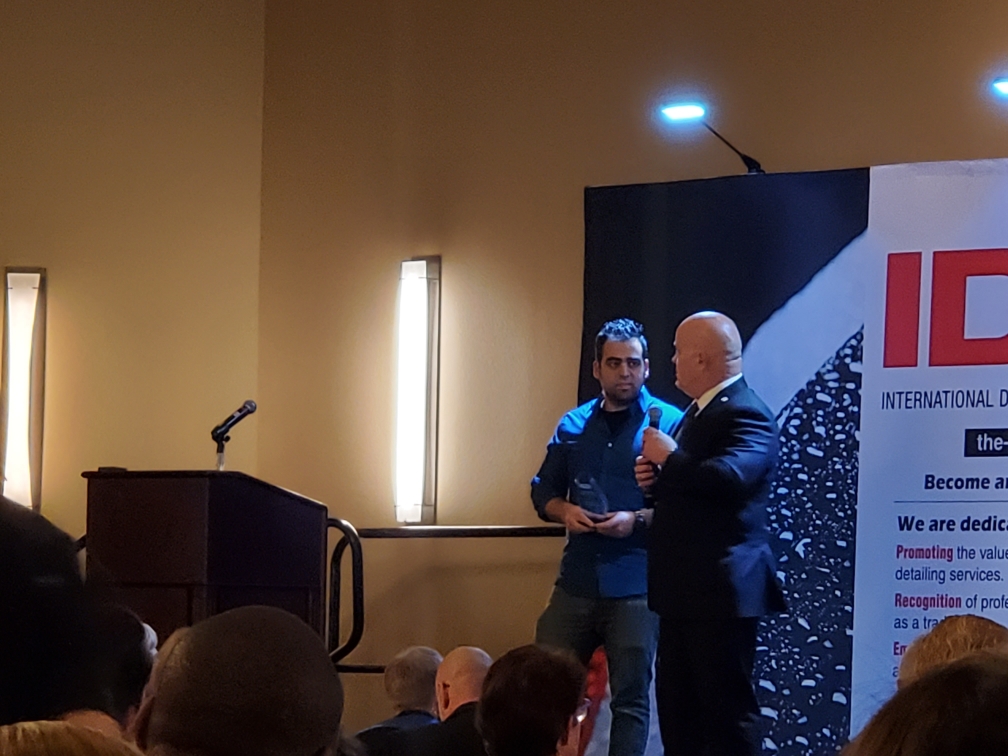
WORKERS’ COMPENSATION INSURANCE
What You Don’t Know Could Bankrupt You…
By Bud Abraham, Detail Plus
What, exactly, is workers’ compensation insurance and how does it apply to detailing businesses? In a nutshell, workers’ compensation laws are designed to provide a means of protecting workers from job-related injuries. A twentieth century development throughout North America, compensation laws evolved as the economy became more industrial and less agricultural.
The first comprehensive workers’ compensation laws were enacted in the U.S. in 1911 and Canada in 1915. Today, all 50 states, as well as American Samoa, Guam, Puerto Rico and the U.S. Virgin Islands, have a worker’s compensation law. There are also federal workers’ compensation laws. Each of the Canadian provinces and territories has a compensation act as well.
In essence, workers’ compensation laws are designed to ensure that employers will assume costs of any occupational disabilities or injuries without regard to fault involved. The resulting losses are considered costs of doing business, chargeable to the company’s price of goods or services. By providing this insurance coverage for the worker, the worker gives up the right to sue the employer for any job-related injury or sickness.
There are six basic objectives at the heart of workers’ compensation laws:
- Provide prompt and reasonable income and medical benefits to work-accident victims or income benefits to their dependents, regardless of fault.
- Provide a single remedy and reduce delays, costs and workloads arising out of personal injury lawsuits.
- Relieve public and private charities of financial drains, related to uncompensated industrial accidents.
- Eliminate payment of fees to attorneys and witnesses as well as time-consuming trials and appeals.
- Encourage maximum employer interest in safety and rehabilitation through appropriate experience-rating mechanisms.
- Promote frank study of causes of accidents (rather than concealment of fault) reducing preventable accidents and human suffering.
It is therefore incumbent upon every business in every state to carry workers’ compensation insurance. And that includes detail businesses of every type—be they brick-and-mortar and/or mobile—provided they have employees.
It is also important to note that only a business can carry the insurance, not individuals. This is a very important distinction, as you will see.
Who Can Avoid Carrying Workers Compensation Insurance?
This is very simple. There are only two situations where workers’ compensation coverage can be excused.
- A self-employed person can opt out. However, the individual must meet all of the Internal Revenue Service (IRS) guidelines for a self-employed person, including a formal filing with the state in which the person does business.
- Principals of a business who own a minimum of 10 percent of the stock of the company.
Apart from these distinctions, everyone else must be covered by workers’ comp insurance. To gain either of these two exceptions, you must file as a business with the state. In other words, obtain a business license for your business. Then and only then will you be given a certificate of exception.
Contract Labor and the Detail Business
Oftentimes, small-business owners don’t have a clear understanding of the difference between contract labor or self-employed labor and that of an actual employee. And think that by paying someone by the car or for piece work, that that individual is a contract worker and the employer can then avoid paying payroll taxes or for social security benefits. Not so. Why? Read carefully if it is not yet clear.
- Everyone must be covered by workers’ compensation insurance.
- For you to have individuals in your shop doing work as contract laborers they must be self-employed as defined by the IRS. Individuals cannot be self-employed, only licensed businesses meet the definition of self-employed.
- Therefore, if you use legitimate contract labor to avoid paying payroll taxes and workers’ compensation insurance, the contract labor or self-employed labor must present either a certificate of coverage or a certificate of exception from the state with regard to workers’ compensation insurance.
If the individual is unable to do so, you are liable for any injury or sickness that the individual might sustain while working in your detail shop or mobile operation.
What is a Workers’ Compensation Claim?
In a nutshell, it’s injury or sickness caused by an on-the-job incident that requires medical attention and costs beyond basic first aid.
For the worker it can be a “gravy train.” That is, the benefits are very generous. For example:
- Payment for all related medical bills and expenses. In most states the cost for medical procedures performed under a worker’s comp claim are higher than a doctor or hospital would receive through health insurance or Medicare. Think about the impact of that on your workers’ comp insurance rates.
- If the injured worker is off from work for three continuous days, he/she will receive a wage replacement equal to an average of 66 percent of their normal weekly income—tax free—up to a specific maximum of about $600 per week.
- Permanent or Partial Impairment Awards: If any injury or sickness results in any kind of permanent problem, the injured worker will receive a cash award. For example, for carpal tunnel surgery the normal award is $2,500.
As you can see these are very generous benefits for the doctor, hospital and the employee. And to make matters worse for those of us who pay for this insurance, it is a very liberal program. Meaning that most states would rather pay a questionable claim than allow a true claim to be denied.
Who Can File a Claim?
Typically, an employee who suffers a job-related injury or sickness will notify the employer. The employer must then notify the insurance carrier within 24 to 48 hours, depending on the state. It’s up to you to know the law in your state with regard to notification.
The employee can also file a claim through a doctor’s office or hospital. If you have ever gone to a hospital emergency room, you were likely asked if the injury occurred on the job. Even the doctor’s office will ask this if they suspect the injury is job related. Why? It is simple economics. The medical provider will receive a higher payment for their medical services under a workers’ comp claim than from medical insurance or Medicare.
The hospital or doctor will notify the employer for coverage information so they can bill the insurance carrier. If they are unable to obtain this information, they will file a claim through the state, which will then verify that a business has coverage. If the business does not have workers’ compensation insurance coverage, there are huge penalties.
What Happens if You Don’t Have the Insurance?
Courtrooms and prisons are filled with people who thought they could outsmart the system. For those who aren’t convinced they don’t really need workers’ comp insurance, sooner or later you will get caught. And the stakes are high.
Depending on the state where your business is located, the costs can be astronomical. Let’s look at the penalties for failure to provide insurance in three states:
California: The employer will be enjoined (prevented) from doing business. Mandatory penalty upon issuance of stop order is $1,000 per employee. Failure to obey a stop order is a misdemeanor; penalty is up to $10,000, imprisonment up to 60 days, or both. A $500 penalty for failure to respond to director’s inquiry. Upon final adjudication of a claim, the uninsured employer shall be assessed: (a) in no compensable cases, $2,000 per employee employed at the time of injury, or (b) in compensable cases $10,000 per employee employed. The maximum shall be $100,000. Payments are credited to the Uninsured Employer Fund of the State Treasury.
Louisiana: Compensation increased 50 percent and civil fine up to $10,000 ($250 for the first offense and $500 for the second, per employee). Employer may be enjoined from doing business. Willful failure to insure is a felony and is subject to a criminal fine up to $10,000 and one year at hard labor. Willful misrepresentation is a felony subject to a criminal fine of up to $10,000 and 10 years at hard labor.
Nevada: Employer liable to suit with defenses abrogated and may be enjoined from doing business. Offending employer will be charged the amount that would have been due for the period the employer conducted business without providing, securing or maintaining compensation, not to exceed 6 years. Policy reinstatement costs by carrier may not exceed 10 percent of the premiums owed by the employer plus interest. First offense, misdemeanor, punishable by a fine up to $1000 and jail up to six months; second offense within 7 years: Class C felony punishable by imprisonment one to five years and/or administrative fines of up to $10,000.
So rather than gamble, here’s what I suggest. Contact the U.S. Department of Commerce in your area or at Department of Business Information & Development, U.S. Chamber of Commerce, 1615 H Street, NW, Washington, D.C. 20062-2000
Request a copy of “Analysis of Workers’ Compensation Laws.” The non-member price is $40 and member price is $20. It will be well worth the investment. Or, contact your workers’ compensation carrier.
How to Minimize the Cost!
Now that the risk to both your business and you personally is clear, here are some ways to minimize the costs for worker’s compensation coverage.
- Find the least expensive (cheapest) rates: Whether you realize it or not, small businesses are the most profitable for insurance carriers that specialize in workers’ compensation insurance. That’s right, they want your business. All you have to do is know how to find the “cheapest” rates or program in your area.
Many states have workers’ comp programs for small businesses called Group or Association plans that can give you the same rates and payment plans as many of the largest employers in the country.
These types of plans can be found through organizations such as:
- Local Chamber of Commerce
- Trade or professional associations
- Special insurance carrier programs
For example, employer members of the Association of Oregon Industries are paying workers’ comp insurance rates at the same level and payment plans as NIKE, one of the largest employers in the State of Oregon. All you have to do to qualify is join the association.
These plans can provide discounts or a return of part of the premium if losses are lower than expected. Contact an agent or broker to research what is available in your area. Avoid assigned risk pools; the rates can be 50 to 75 percent higher than average.
Also, be sure that your detail business is in the correct classification. Since there is no specific classification for detail shops, they will likely put you in some type of auto service classification, often one that would command higher rates than for a detail shop. Keep on top of this.
- Hiring Procedures: It is said among workers’ comp carriers that an employer hires its workers’ comp claims. That’s right; your claims will be a clear reflection of the type of people you hire.
As I have been preaching for years, you want to hire people with a good work ethic and good values, and give them the skills they need.
- Workplace Safety: This is an OSHA requirement. Prevention is the best way to keep worker’s comp insurance premiums down. No accidents, no increase in premium costs
And, there are ways to implement prevention in your shop.
- OSHA: Every state has an agency that is affiliated with OSHA, but is not an enforcement agency. It is the purpose of this agency to visit your shop, on request only, for the purpose of evaluating things in your shop that are not up to OSHA safety regulations. They will give you a written report on what you need to do to remedy these problems.
They are not an enforcement agency, and it is against the law for this agency to report its findings to the OSHA enforcement agency. However, if in their report they find violations, you will have a certain period of time to remedy the situation. If you do not remedy the violations, then and only then, can your shop be reported for not correcting violations.
- Your worker’s comp insurance carrier will have personnel whose job it is to help companies improve safety in the workplace. They will come out at no charge to evaluate your shop and point out possible OSHA violations. They will help you to see what can cause an accident and what can be done to remedy the problem.
Summary
This is not a particularly pleasant subject for most business people. But it is one that we all must face.
It is a cost of doing business. And, from a practical point of view, most of us were employees at one time, and weren’t we secure in knowing that any job-related accident or injury was going to be covered? It can even cover us personally if we choose to pay the premiums on ourselves. And we certainly owe it to our employees to provide this security.
For more information or professional advice, call 800.284.0123 or email to detailplus@detailplus.com.





